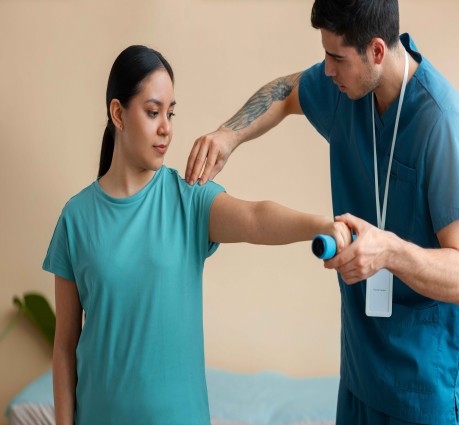The Master of Physiotherapy (MPT) is a two-year postgraduate degree programme that comes under the stream of Medicine and Allied Science. The Two-Year Master's Programme in Orthopaedic/Musculoskeletal Physiotherapy helps the student gain knowledge about different musculoskeletal conditions such as knee osteoarthritis, lower back pain, and neck pain, among others. It also deals with the treatment of sprains, strains, post-fracture, post-surgery, and repetitive injuries. Orthopaedic physical therapy involves the care of the entire musculoskeletal system, which includes bones, muscles, ligaments, tendons, joints, and connective tissue. We provide the ideal combination of engaging lectures, field trips, hands-on activities, participation in national and international seminars, conferences, and internships. The programme gives students practical instruction in the form of a research project.
Duration of programme
Level of Study

Relevant programme for in-depth Physiotherapy understanding.
Academic excellence and advancement are supported for candidates.
Physiotherapy's scope expands with the impact of sedentary lifestyles.
Skilled in research, legislation, and public policy.
PSO6: Demonstrate knowledge of legislation applicable to compensation for functional disability welfare schemes and the rights of the disabled, laws related to industrial workers and the disabled, and appropriate certification.
PSO7: Demonstrate proficiency in classroom and clinical teaching using newer and more appropriate technology.
Eligibility Criteria
50% marks in Bachelor in Physiotherapy.